As Though We Hid the Sun in a Sea of Stories
21 Oct 2023 - 14 Jan 2024
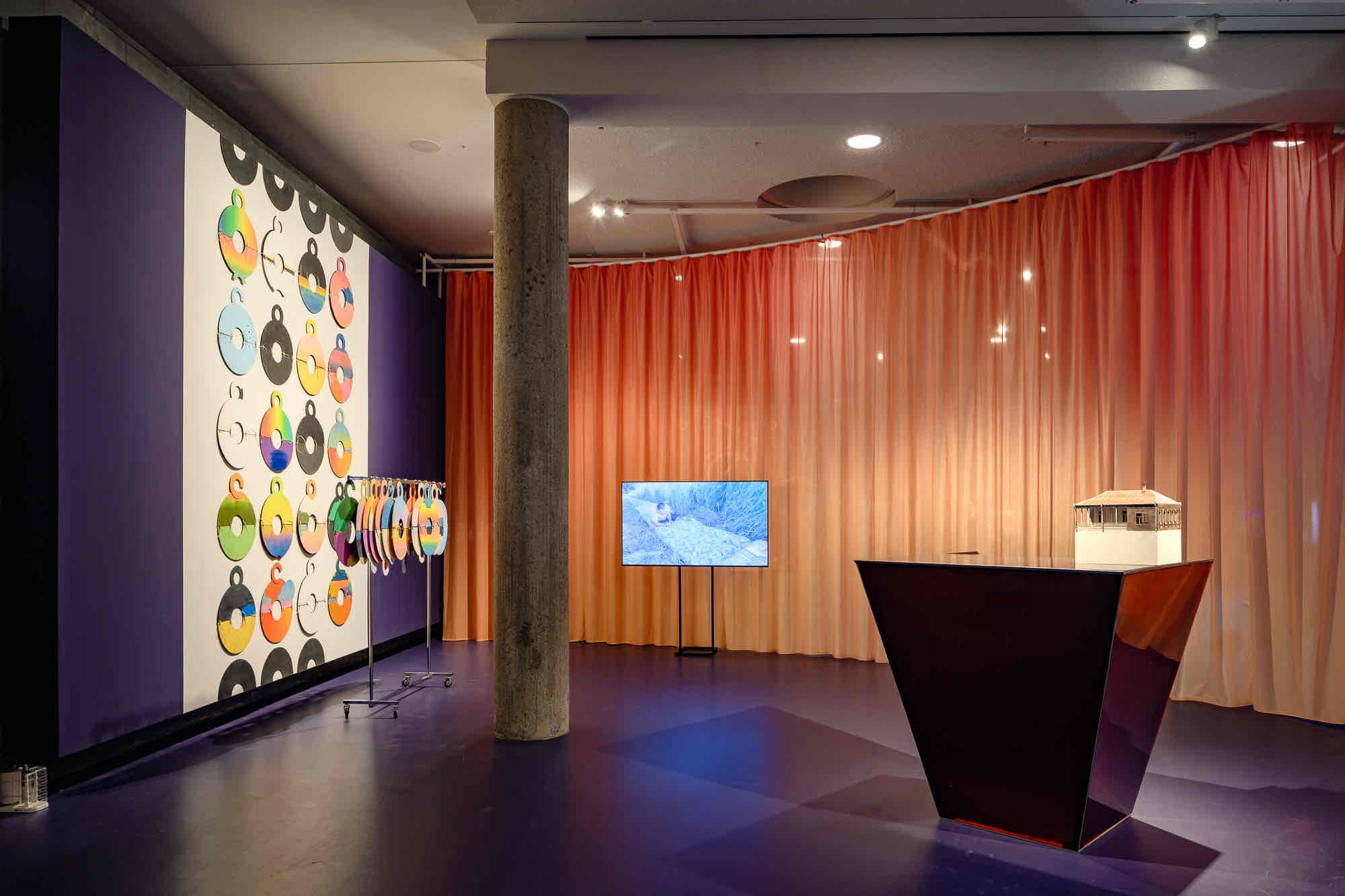
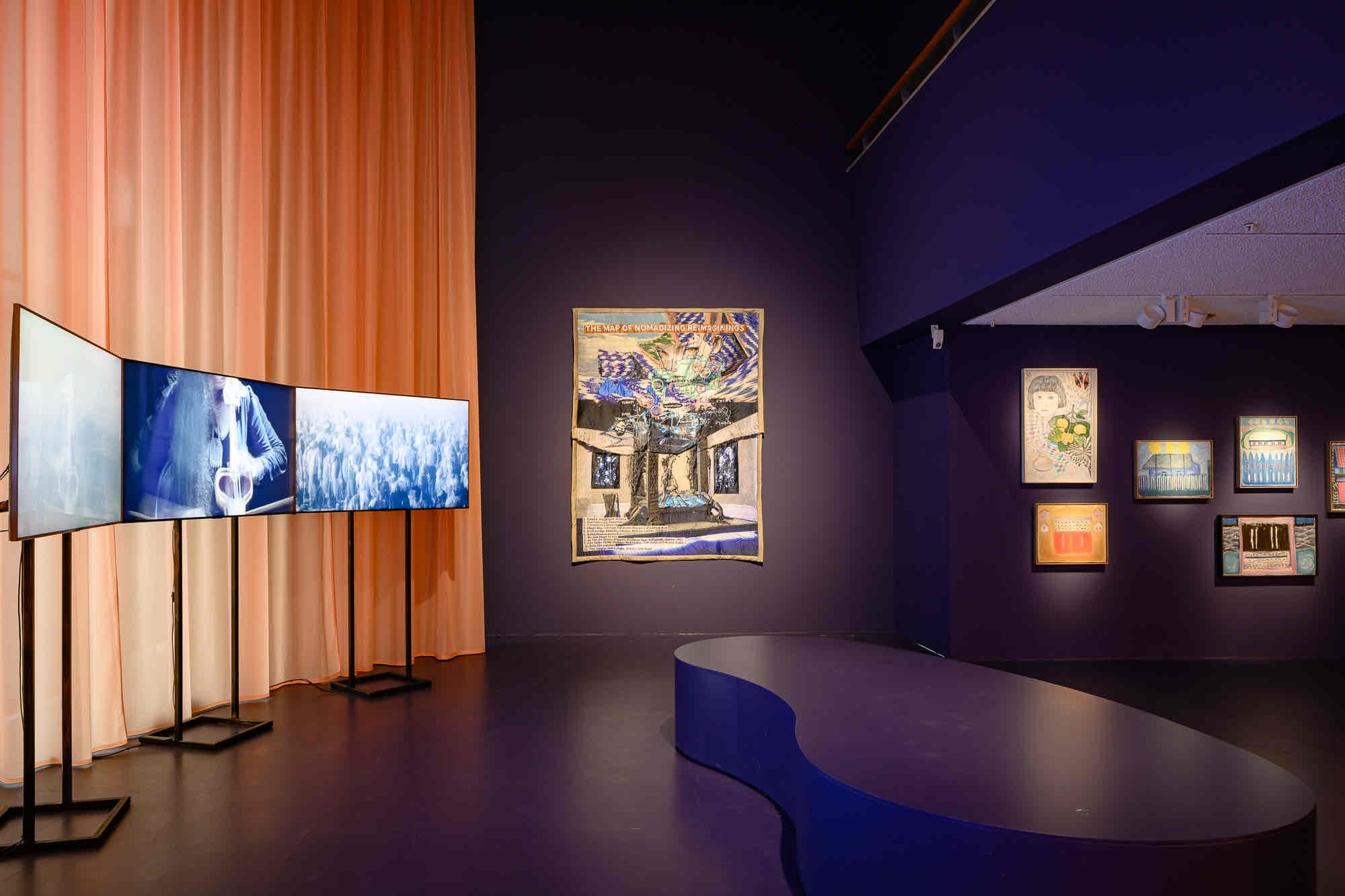
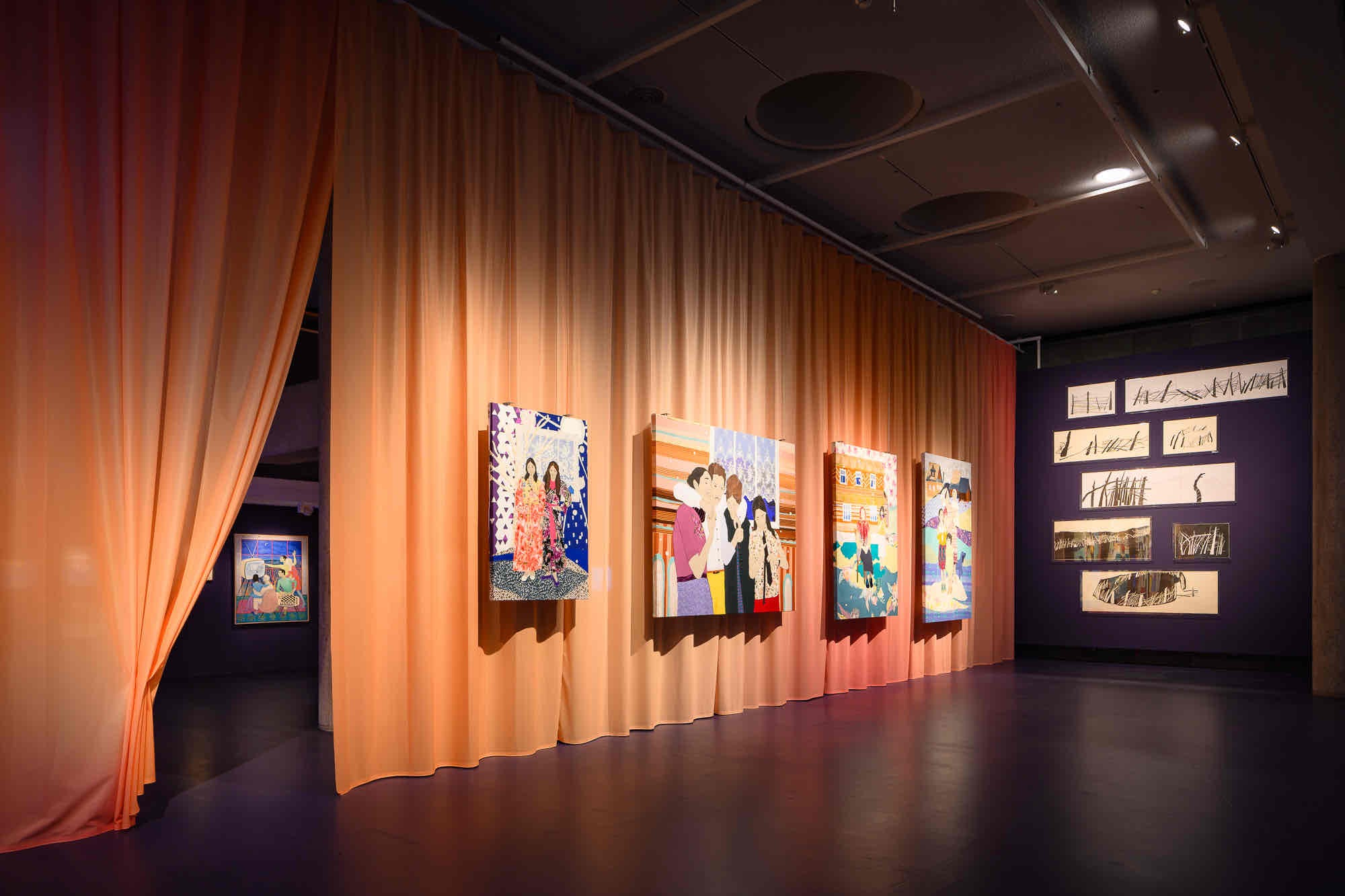
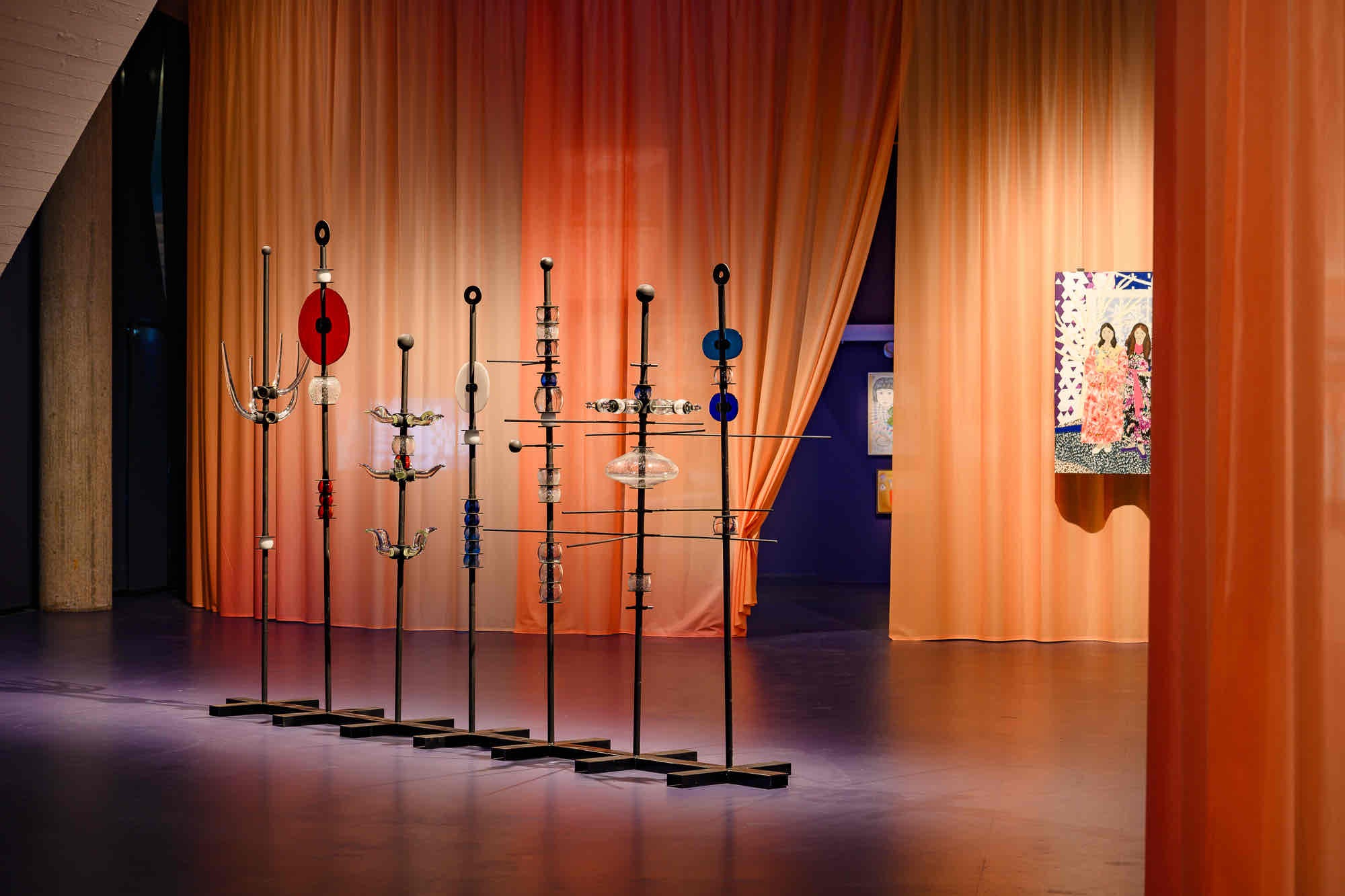
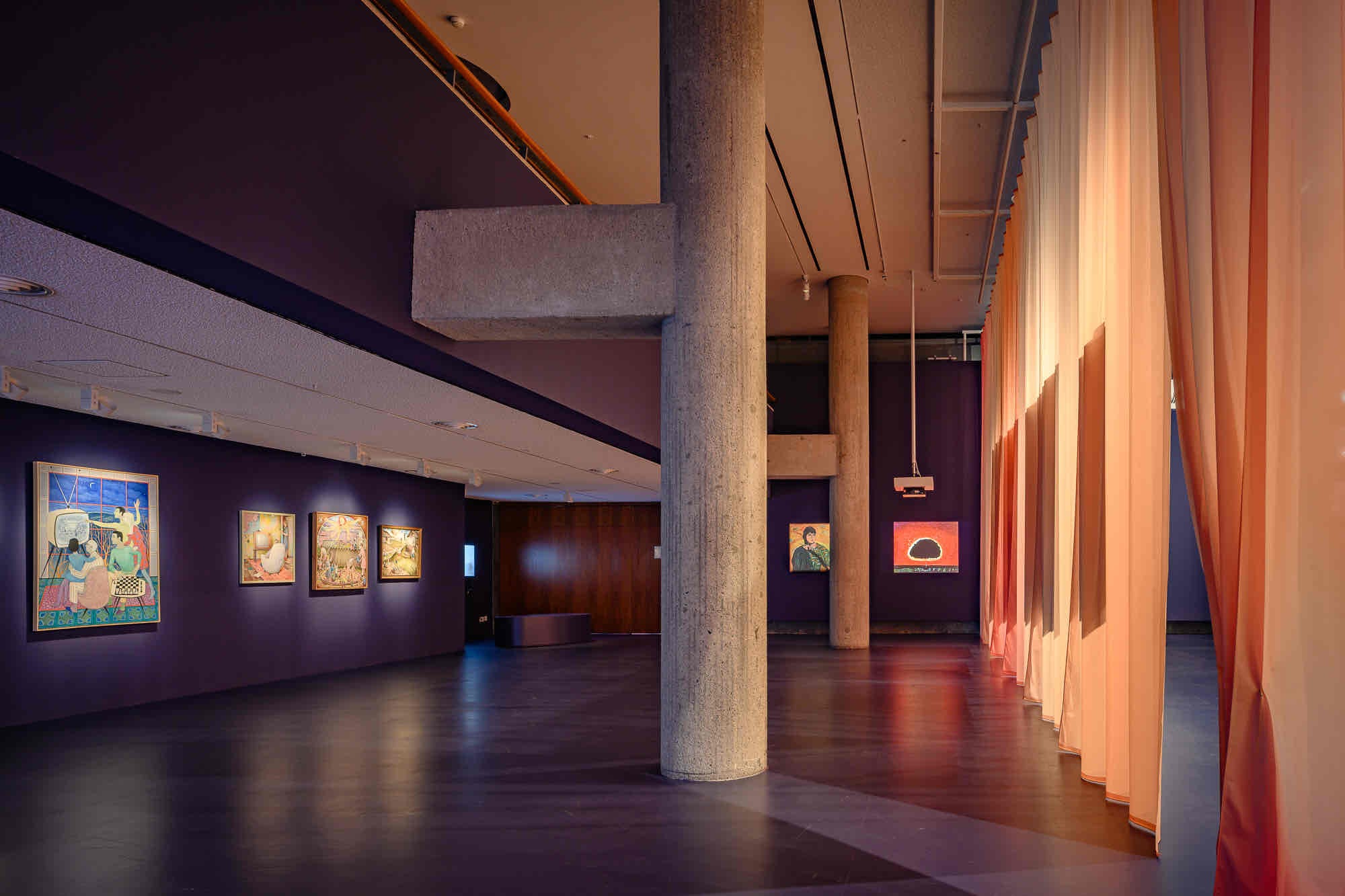
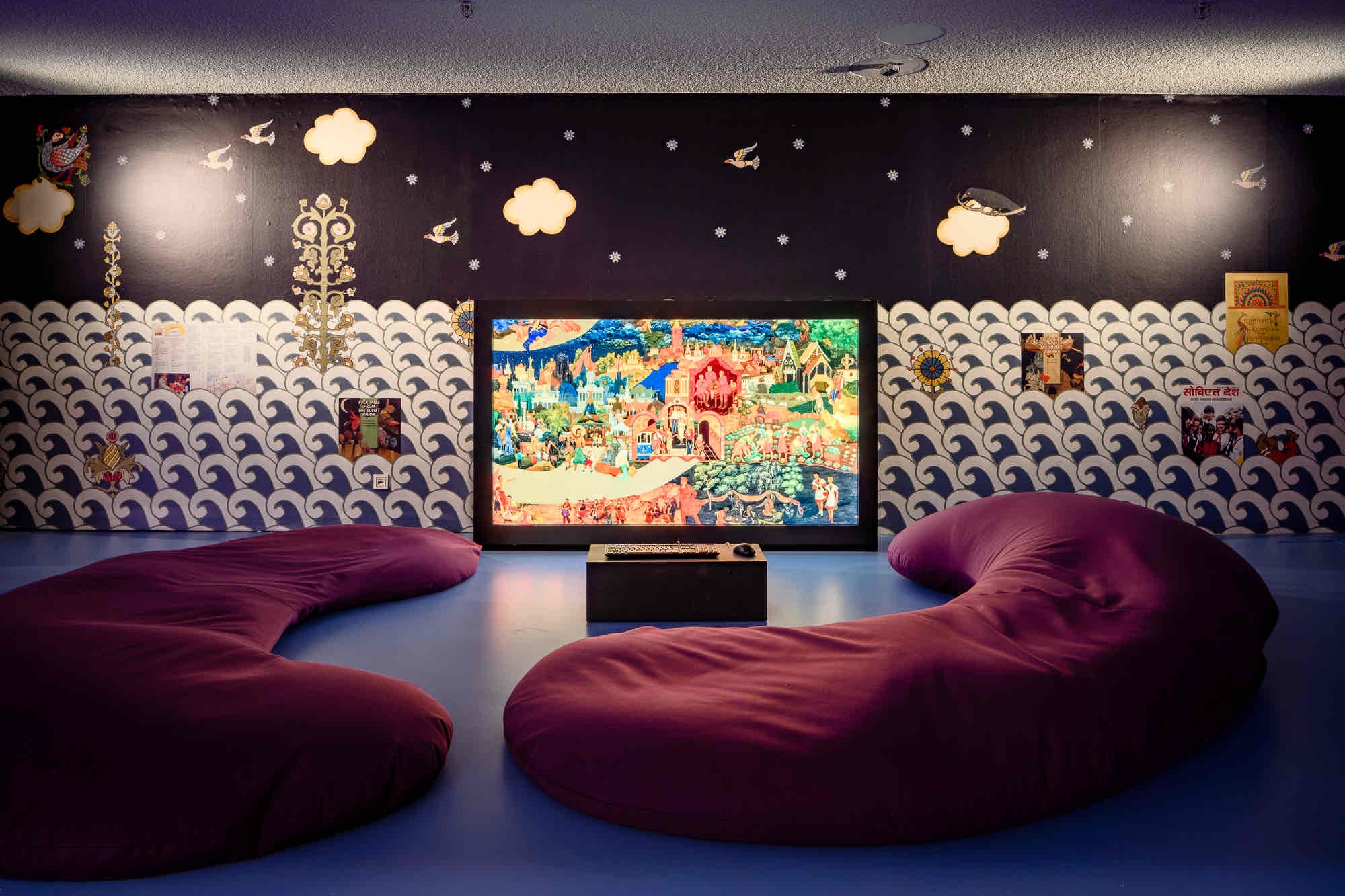
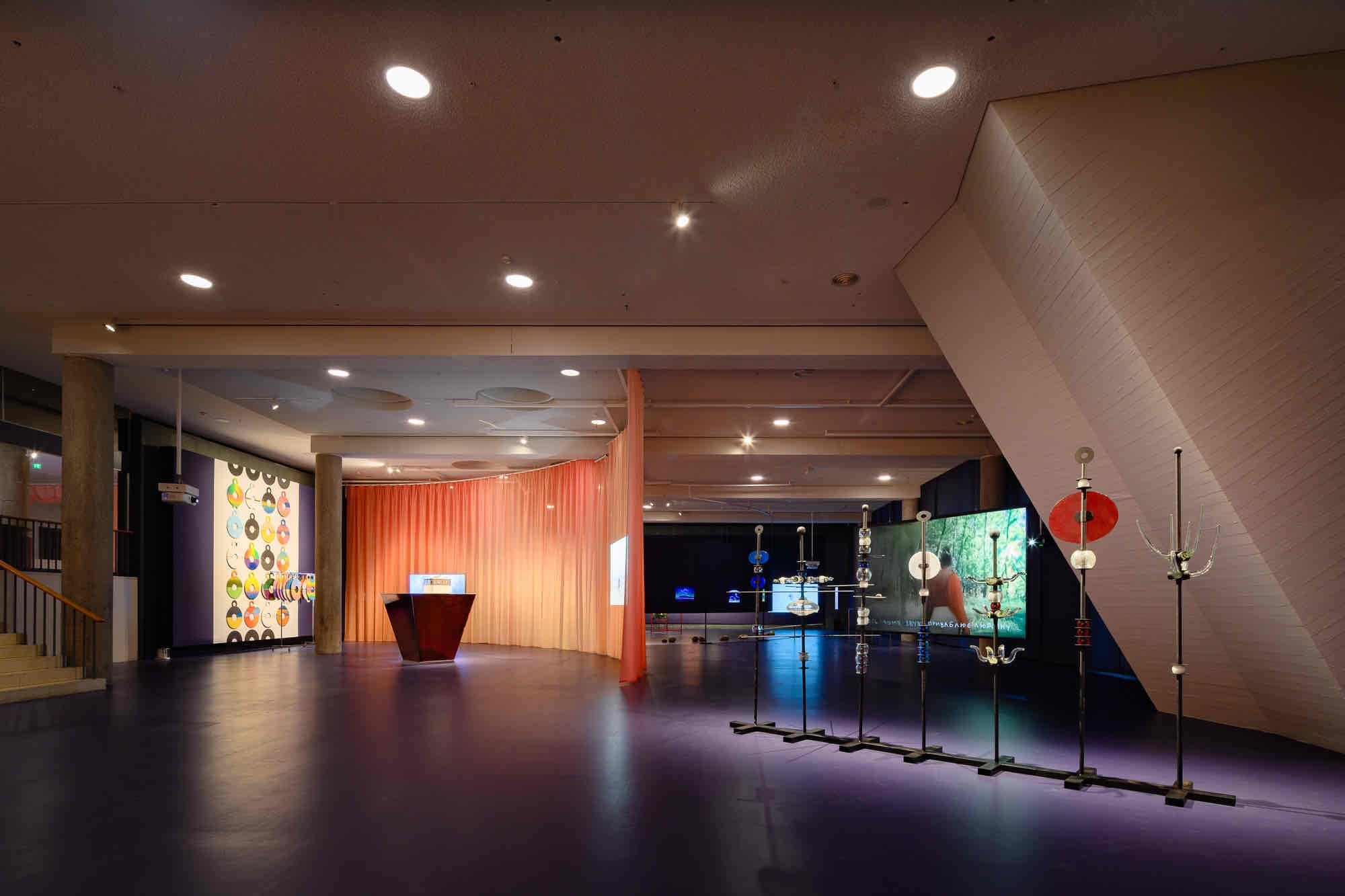
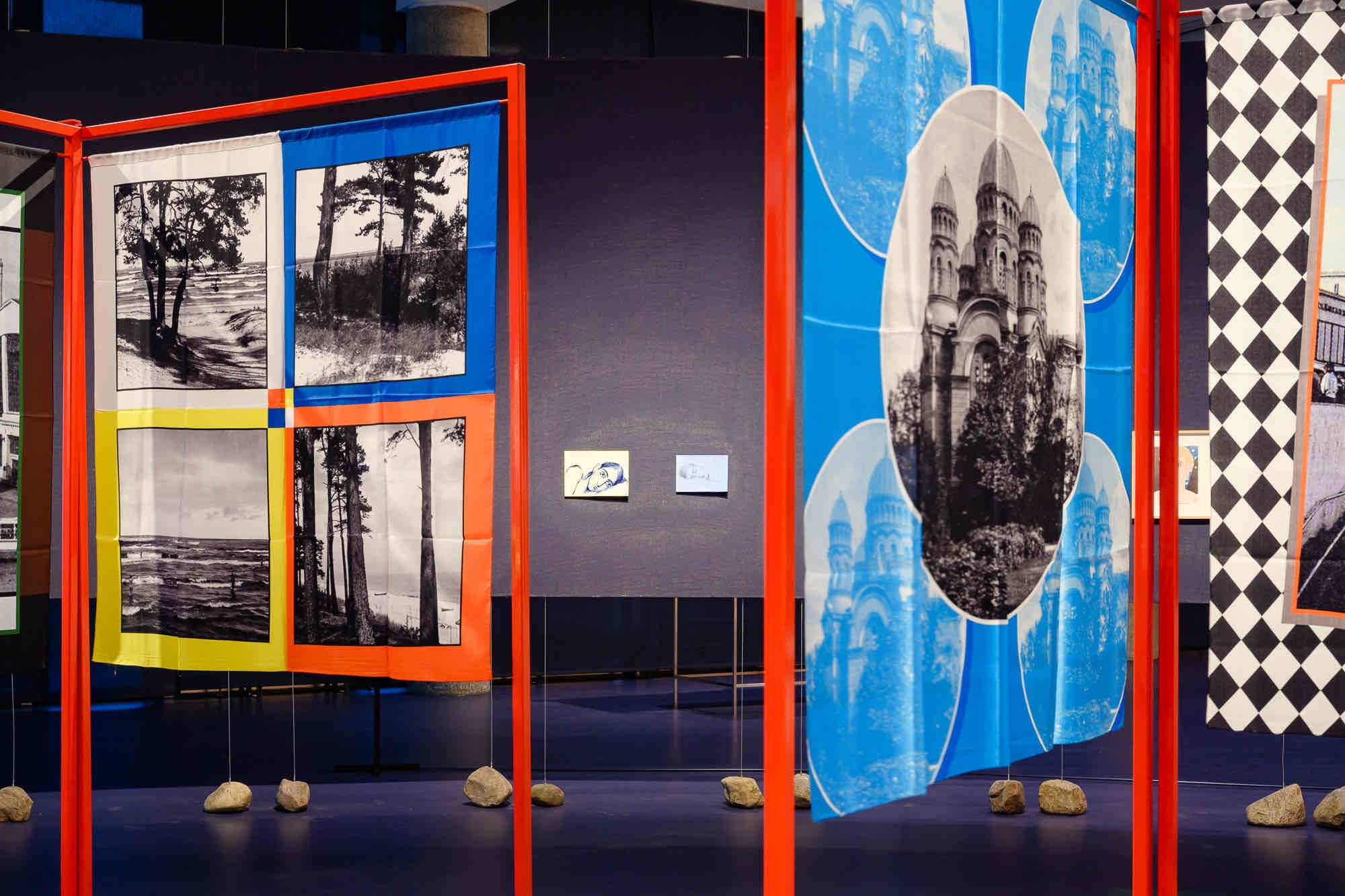
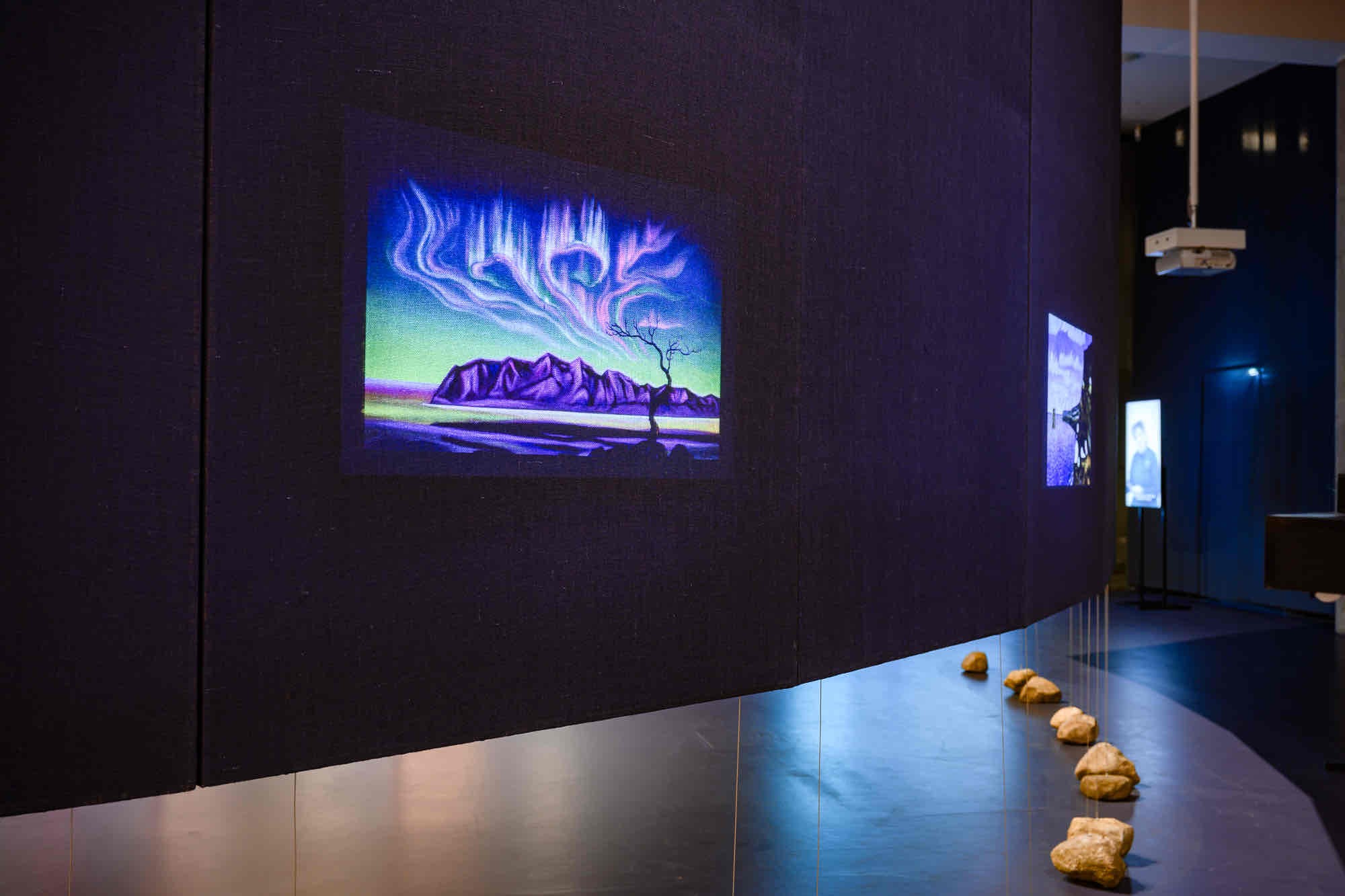
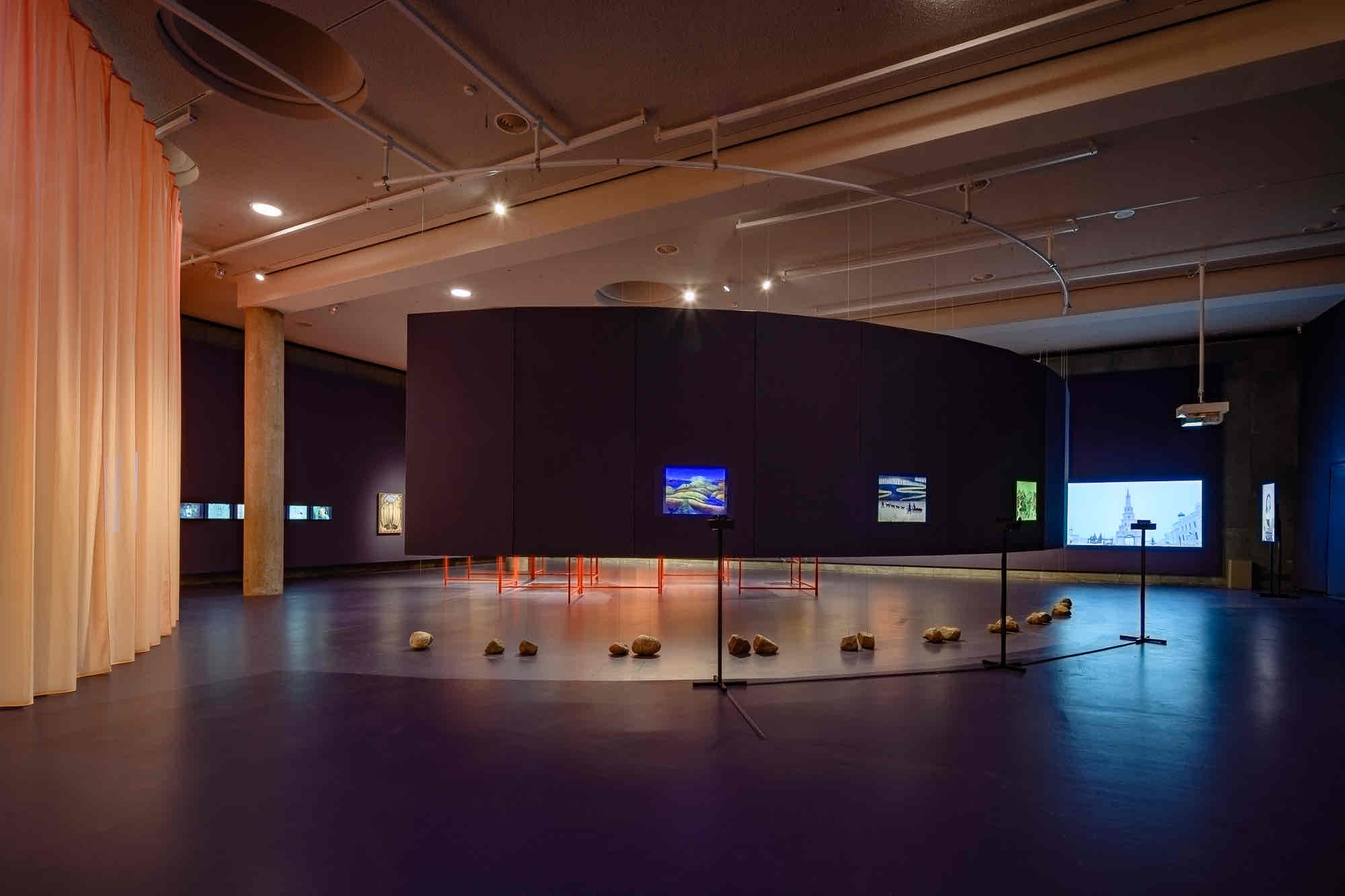
Seemingly eccentric in relation to the exhibition’s geographies, the title is enkindled by ‘The Blesséd Word: A Prologue on Kashmir’, a poem written by the Kashmiri poet Agha Shahid Ali in 1990 and dedicated to his violence-ridden country. Conveying the grief of a homeland being destroyed, Ali likens his own fate with that of poet Osip Mandelstam, who was repressed and sent into internal exile by Stalin’s regime and subsequently perished in a Siberian camp. Featuring a line by Mandelstam as one of its epigraphs, Ali’s poem strived to articulate the tragedy of his people and yearnings for a lost homeland; in so doing, he invokes another loss in another time and country.
Ali chants his country, conjuring its name in eighteen different phonetic and graphic variants (the French cauchemar or nightmare, also included in this enumeration). This rhyming of times and spaces, a grafting of verses from Ali’s and Mandelstam’s poems, and the polyphony of meanings, is the sign under which the exhibition marks a site for itself with its title—particularly during these times of renewed Russian imperialist aggression, which started with the invasion of Ukraine in 2014 and continues today in a brutal war.
Naming is often a form of abuse. Whether ‘post-soviet’, which persists as the descriptor of a specific moment of the past, or Eurasia, as imagined by contemporary Russian far-right political thinking (which has captured the state), terms force meaning onto places. The ‘North Eurasia’ in the exhibition’s subtitle is not meant to be an alternative label nor imagines for itself a future, but is rather a designation of geography that strives to be as neutral as much as geography can ever be, one that relies on the absence of labels past and of the empire itself. In this void, the richness of life that has been repressed, of communities that have survived against the odds, could rather imagine a future that is free to be full and plenty of meaning.
Exhibitions don’t happen in isolation, and this one follows the proposition of its predecessor O Quilombismo, which has spoken about the power of relying on a multiplicity of epistemic lineages as grounds for new models of living together, free from the oppression that has otherwise been manifested at all levels of life and knowledge.
Poetry is a powerful tool, for it can shape imagination that itself can create realities. In this line of thinking, how can this vast part of the earth that has been brought together through imperial conquest and subjected to the violence of naming, alongside myriad forms of violence against individuals, communities, and the environment be imagined otherwise, devoid of the hegemon that brought it together in the first place, dis-imagined as a whole and disentangled from its constitutive parts, each deserving of singularity? And how can solidarity still be established between communities in various stages of liberation from subjugation while working towards epistemic disintegration from their forced amalgamation by the oppressor, one of the least affected by processes of decolonization and resisting them with unspeakable violence?
As Though We Hid the Sun in a Sea of Stories presents a non-totalizing vision by way of summoning multiple forms of subjectivities, imaginations, and sensualities that were dimmed by colonization and later fell out of the modernist canon, as well as by showcasing contemporary works that accentuate perseverance, resistance, and joy and explore connectedness beyond forcefully bounded pasts—many of them informed but not subjugated by this very canon. It invites processes of collective memory, the revival of cosmologies and vanished knowledges, the consideration of networks of those who defy imperially drawn borders, as well as forms of collective resistance and imagination of futures that can be lived, survived, and rejoiced in.
With contributions by Chingiz Aidarov, Auseklis Baušķenieks, Akhmat Biikanov, Lidiya Blinova, Pavel Brăila, Aslan Ġoisum, Enno Hallek, Saodat Ismailova, Nikolay Karabinovych, Anton Kats, Meiro Koizumi, Galina Konopatskaya, Xenia Kudrina, Zoia Lebedeva, Jazgul Madazimova, Ilmar Malin, Almagul Menlibayeva, Yäniyä Mikhalina, Pavel Mikushev, Małgorzata Mirga-Tas, Nazilya Nagimova, Furqat Palvan-Zade, Natalia Papaeva, Sergey Parajanov, Kaljo Põllu, Valentina Rusu Ciobanu, Jaanus Samma, Afrah Shafiq, Tatnuu, Andro Wekua, Hanna Zubkova.
